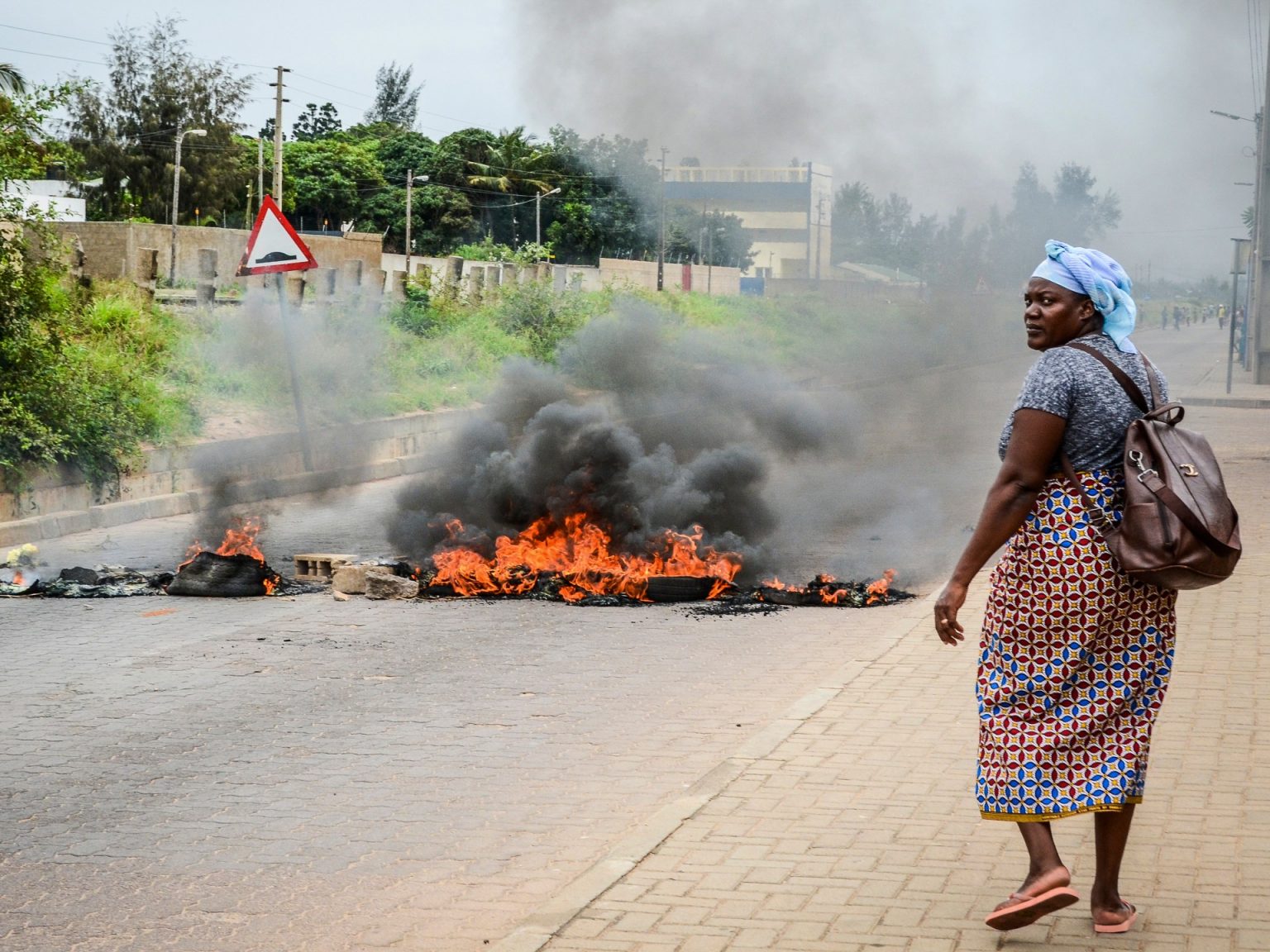In Maputo, Mozambique, protests have erupted following the disputed general election results declared in favor of the ruling party’s presidential candidate, Daniel Chapo. Opposition leader Venancio Mondlane, who received 20 percent of the vote, rejected the results and called for shutdowns and protests. The protests took the form of nightly pot-banging demonstrations known as “panelacos” to express frustration without facing immediate police retaliation. The protests have united residents across class divides in voicing their dissent over the election results.
The protests intensified with Mondlane calling for shutdowns of economically vital locations, leading to deadly confrontations with police. At least 30 people have been reported killed in the protests, impacting regional trade and disrupting critical routes for goods and commuters. Environmental engineering student Henrique Amilcar Calioio joined protests in Maputo and described the pot-banging as a way of challenging what he sees as an oppressive government. The protests have been met with tear gas and aggressive police responses, leaving residents in fear.
Schoolteacher Shenaaz Jamal criticized the heavy-handed police response, noting the atmosphere of fear and intimidation in the city. The protests have also led to periodic internet blackouts enforced by the government, hindering communication and causing chaos. The widespread participation in Mondlane’s calls for nationwide shutdowns has raised doubts about the legitimacy of the official election results, with many questioning why people are following his instructions if he received only 20 percent of the vote.
The protests in Mozambique have deeper roots in economic stagnation and disenchantment with the ruling elite. Sam Jones, a senior research fellow at the World Institute for Development Economics Research, believes the protests reflect a cumulative frustration with the country’s direction. The police have condemned the protests as “urban terrorism”, while the response has been viewed as aggressive and disproportionate. The unrest has also begun to impact food supplies in Maputo, causing anxiety around potential food shortages.
The ongoing crisis has led to economic losses for both Mozambique and South Africa, with shops vandalized and border closures disrupting trade. The Southern African Development Community has scheduled an emergency summit to address the crisis. The protests have taken on a life of their own, with unprecedented scale and persistence reflecting deep dissatisfaction with the status quo. The participation in the protests has been broad and intense, indicating a broader anger beyond the election grievances. The protests show no signs of slowing down, posing a challenge for politicians and diplomats in addressing the underlying issues fueling the unrest.













